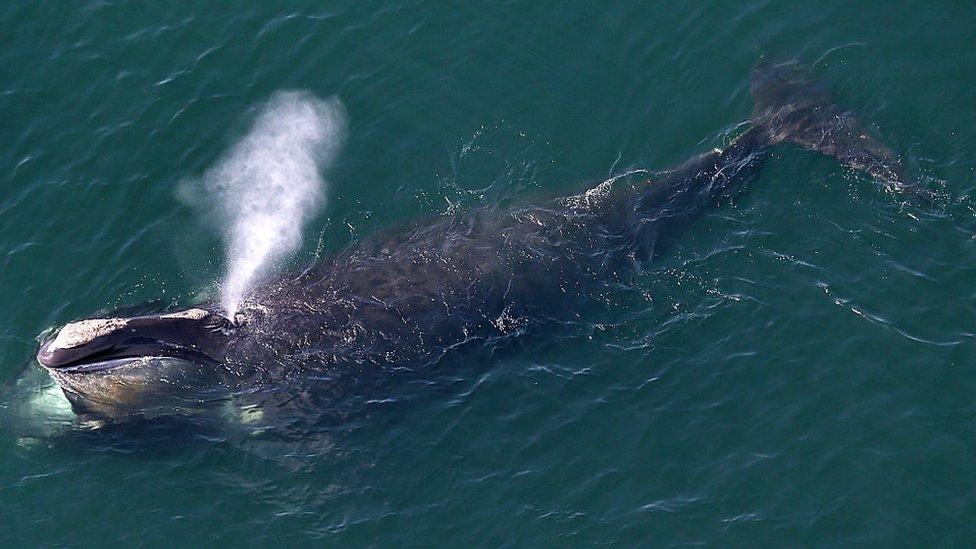'Exceptionally rare' whale sighted off Donegal coast
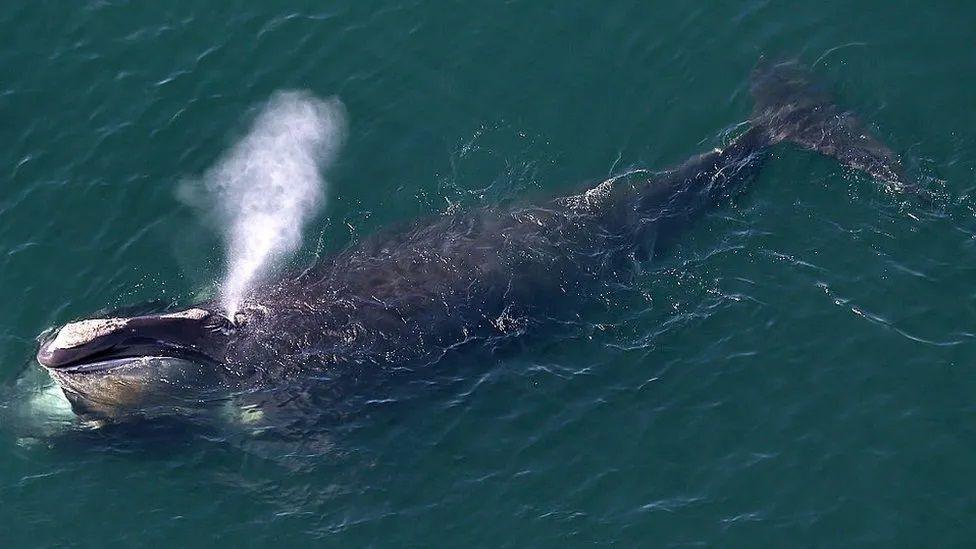
The North Atlantic right whale could be extinct within 20 years
- Published
A rare whale has been recorded off the County Donegal coast, according to the Irish Whale and Dolphin Group (IWDG).
It was spotted swimming near Sliabh Liag on Monday.
North Atlantic right whales are among the planet's most critically endangered large ocean mammals.
It is believed fewer than 350, external remained as of 2023 and they could be extinct within 20 years.
“This is an exceptionally rare record for the eastern Atlantic, where this species has been largely absent for decades, if not longer,” the group said.
“We can make a convincing argument that the last positive identification of this species in Ireland dates back to 1910.”
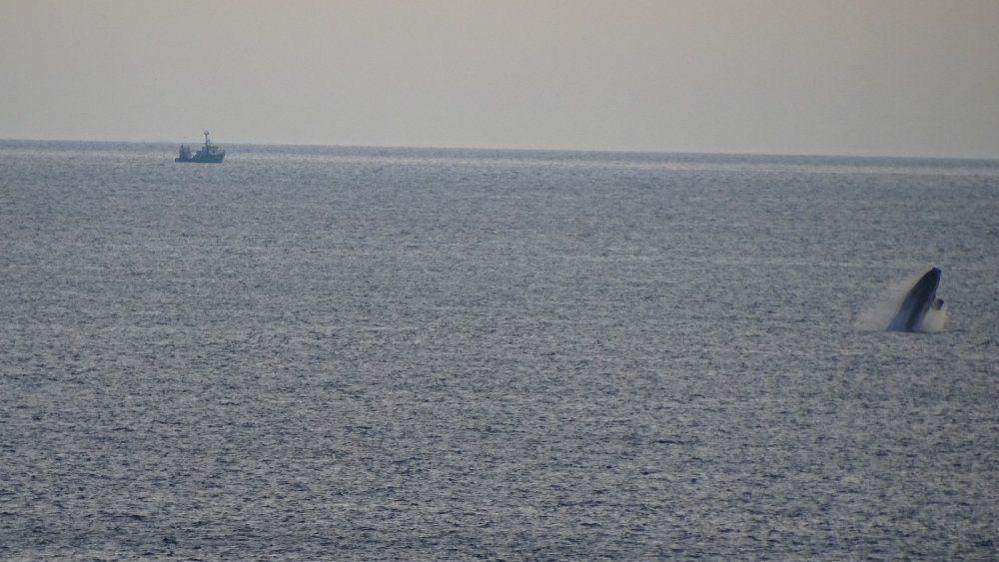
The whale has been observed near Killybegs in County Donegal
In situations where rare species are recorded, the IWDG said it consults “far and wide to make sure the information is accurate”.
The sighting was verified by the New England Aquarium - which curates the North Atlantic Right Whale Photo ID catalogue - in the United States.
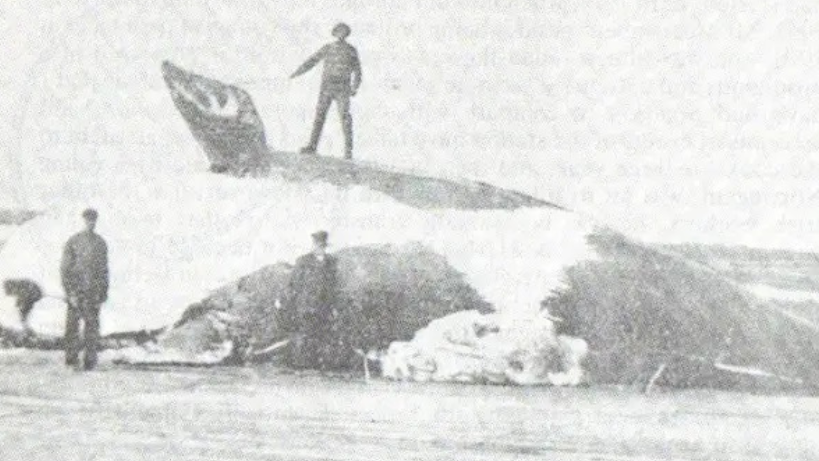
It is believed the whale was last identified in County Mayo, 114 years ago
What is the North Atlantic right whale?
North Atlantic right whales are like tanks in the water - heavy, wide and dense.
They are also curious, acrobatic animals who can be seen breaching the water and smacking it with their flukes.
For centuries, they were lucrative prey for whalers.
In the medieval era, they were hunted by the Basques and later their blubber helped fuel the Industrial Revolution, when whale oil was used to lubricate factory machinery.
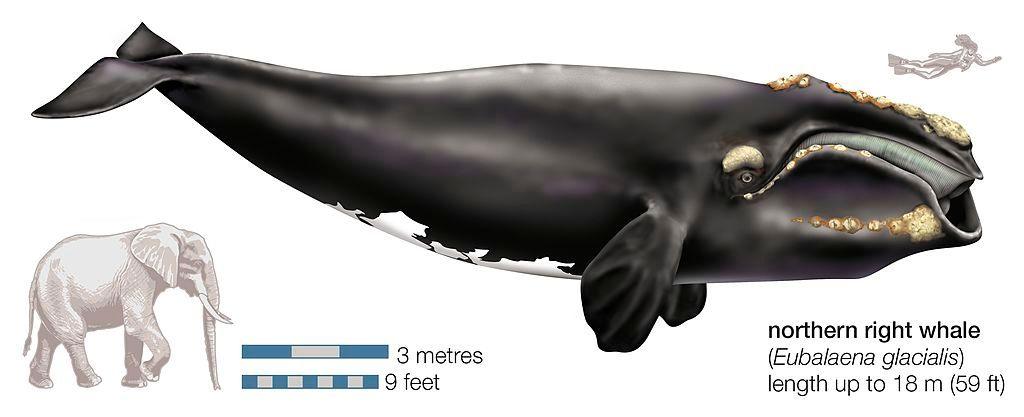
By the early 1890s, commercial whalers had hunted right whales in the Atlantic to near extinction, external, and they have been listed as endangered since 1970.
Now their habitat overlaps with a heavily industrialised part of the ocean ranging from Florida to Newfoundland.
It is over 1,000 miles of coastline crowded with ship traffic and economically important commercial fisheries.
Most are now being killed by boats and fishing gear.
'Please give it space'
The IWDG has requested wildlife enthusiasts to avoid the whale, and to only observe it from shore using optics.
“There is an enormous onus on us all to ensure this whale remains as long as it needs in Donegal bay, where it’s most likely feeding on tiny copepods, without having to run the gauntlet of small craft and sightseers,” the group said.
“As with all whales, they have full protection under Irish law… this is our chance to help a population of whales on the very brink.
“Please give it space.”
Related topics
- Published1 August 2019
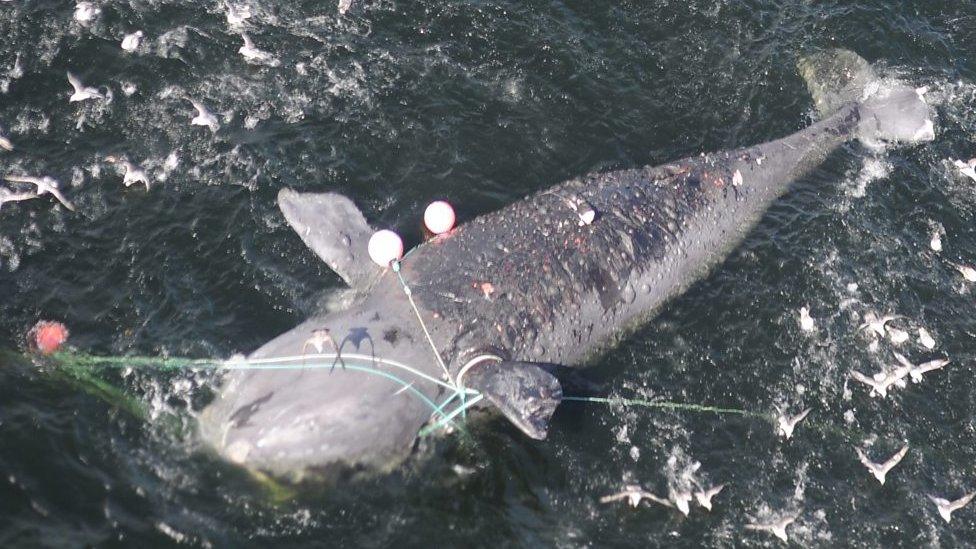
- Published14 April 2019
